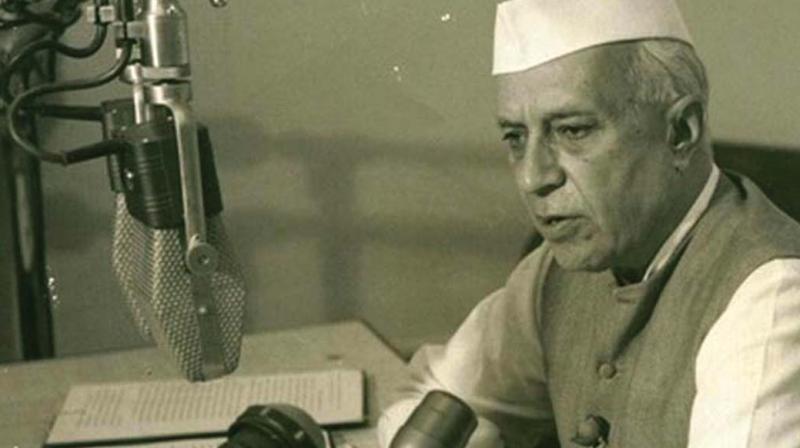Remembering Jawaharlal Nehru
55 years ago it was a different India, Nehru leading a great band of leaders, who risked all they had for the sake of Swaraj.

The young have different takes on the legacy of our first Prime Minister, Jawaharlal Nehru. 55 years ago it was a different India, Nehru leading a great band of leaders, who risked all they had for the sake of Swaraj. Much water has flowed down the Ganga and so do perceptions vary.
Flamboyant politician
Nehru was one of the most flamboyant politicians ever. His unique statement comprises a red rose, Gandhi cap, Nehru jacket and achkan; out of them his jacket is now a trend followed by even Bollywood celebs. Achkan, in which Nehru made many international appearances, was also later used as a festive male costume, but in his time it had an idea of nobility. Its popularity even made the West advertise this clothing range. Here there is a contrast though, between Nehru and our current Prime Minister. The latter also has a great dress sense, but it lends the impression of being monochromatic unlike the composite attire of the man who celebrated India's diversity in all its myriad hues.
—Nisha.R, house surgeon
Industrialisation, national unity, parliamentary democracy, socialism, secularism
Jawaharlal Nehru was the first Prime Minister of the independent Indian state. His national philosophy modernisation of India consisted of industrialisation, national unity, parliamentary democracy, socialism, development of the scientific temper, secularism and non-alignment. Nehru's ideology of nationalism was free from narrow mindedness and it was closely attached to his ideals of education. To him, devotion to learning was meaningless in the absence of devotion to the nation. He reformed India's Hindu Civil Code, made the case system illegal and pushed for a more secular India. Nehru is best known for his enduring brand of Nehruvian socialism or the Indian version of socialism. He was responsible for the special economic reform policy vehicle, Planning Commission of India. The Planning Commission of India was Nehru's brainchild. The enduring legacy of Nehru rule is the effect of Nehru's economic policies. His economic policies were far reaching and its effects are felt to this day.
—Ann Mary Roy, 2nd year B.Com
He believed in secular India
Nehru's politics was broad and inclusive. Remember his famous coinage, unity in diversity. Democracy was central to his political philosophy. He believed in building India into a truly secular country, with people of different faiths enjoying the freedom to pursue their faith. He believed in pluralism, which defined modern India. Starkly, these values are under test now. Competitive religious posturing marks our time, a negation of Nehru's legacy. There were differences between him and his mentor, Mahatma Gandhi, but those were part of a genuine intellectual discourse between kindred souls, united in the noble project of building a nascent nation.
—Joffin George, under graduate

